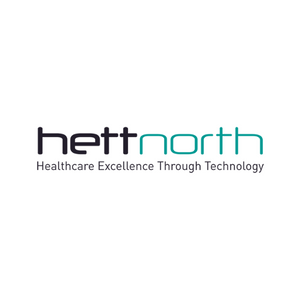In the dynamic landscape of healthcare, the integration of technology has become paramount for improving patient outcomes, enhancing research capabilities, and optimising healthcare delivery. Federated data platforms have emerged as a groundbreaking solution tailored to the unique challenges of the healthcare sector. This blog delves into the profound impact of federated data platforms on healthcare, exploring their key components, benefits, and use cases in the pursuit of collaborative and data-driven healthcare solutions.
Understanding Federated Data Platforms in Healthcare
A federated data platform in healthcare is a decentralised system that allows various healthcare entities, such as hospitals, clinics, research institutions, and pharmaceutical companies, to collaboratively analyse and derive insights from their respective datasets without centralising the data. This approach ensures that sensitive patient information remains within the boundaries of the respective healthcare organisations while still enabling collective analytics for research and healthcare improvement.
Key Components of Federated Data Platforms in Healthcare
-
Decentralised Architecture for Patient Data Security
The foundational principle of federated data platforms in healthcare is a decentralised architecture that prioritises patient data security. Each healthcare entity retains control and ownership of its patient data, safeguarding sensitive information and complying with stringent privacy regulations like HIPAA.
-
Interoperability Standards for Seamless Collaboration
Healthcare systems often use different technologies and standards for data storage and management. Federated data platforms address this challenge by relying on interoperability standards, ensuring seamless collaboration and data exchange between disparate healthcare systems while maintaining data integrity.
-
Data Encryption and Robust Security Measures
Security is paramount in healthcare, given the sensitive nature of patient data. Federated data platforms employ robust encryption techniques and stringent security measures to protect patient information during transmission and storage. Access controls and authentication mechanisms further safeguard against unauthorised access.
-
Query Federation for Distributed Analytics
Federated data platforms leverage query federation techniques to distribute analytical queries across the decentralised network. This allows healthcare organisations to collectively analyse patient data without physically moving or centralising the data. Query federation ensures that insights can be derived from diverse datasets while respecting data ownership.
-
Governance Framework for Ethical Data Sharing
Ethical data sharing is critical in healthcare, and federated data platforms implement robust governance frameworks. These frameworks establish rules and policies for data sharing, usage, and access, addressing issues such as patient consent, data ownership, and compliance with regulatory requirements.
Benefits of Federated Data Platforms in Healthcare
-
Preservation of Patient Data Privacy
Federated data platforms uphold patient data privacy by allowing healthcare organisations to maintain control over their patient records. This privacy-centric approach builds trust among patients, ensuring that their sensitive health information is not compromised during collaborative analytics.
-
Enhanced Research Collaboration
Research in healthcare often requires access to diverse datasets for comprehensive insights. Federated data platforms facilitate enhanced collaboration among healthcare institutions, research facilities, and pharmaceutical companies, enabling joint research initiatives without compromising data security.
-
Accelerated Clinical Trials and Drug Development
In the realm of drug development, federated data platforms streamline collaboration between pharmaceutical companies and research institutions. This accelerates clinical trials by providing access to a broader patient pool while respecting the confidentiality of patient data.
-
Improved Population Health Analytics
Federated data platforms empower healthcare organisations to conduct population health analytics by pooling data from various sources. This enables a more comprehensive understanding of public health trends, disease prevalence, and healthcare needs within specific communities.
-
Effective Response to Public Health Emergencies
During public health emergencies, such as pandemics or outbreaks, federated data platforms play a crucial role in facilitating real-time data sharing. This enables healthcare professionals and public health agencies to collaborate on a global scale, enhancing the collective response to emerging health threats.
Use Cases of Federated Data Platforms in Healthcare
-
Cross-Institutional Research Collaborations: Federated data platforms facilitate cross-institutional research collaborations, allowing multiple healthcare institutions to share insights and data for groundbreaking medical research without compromising patient privacy.
-
Precision Medicine and Personalised Treatment Plans: The personalised nature of federated data platforms supports precision medicine initiatives. By collectively analysing diverse patient data, healthcare providers can tailor treatment plans based on individual genetic, lifestyle, and demographic factors.
-
Telemedicine and Remote Patient Monitoring: Federated data platforms play a role in telemedicine by allowing healthcare providers to remotely access patient data securely. This is particularly valuable for remote patient monitoring, enabling timely interventions and adjustments to treatment plans without compromising data security.
-
Chronic Disease Management and Population Health: Managing chronic diseases requires a holistic understanding of patient data. Federated data platforms contribute to chronic disease management by facilitating the analysis of patient data across healthcare organizations, leading to more effective population health strategies.
-
Public Health Surveillance and Outbreak Monitoring: During public health crises, federated data platforms support real-time surveillance and outbreak monitoring. By aggregating data from various sources, health
Find out More About The Federated Data Platform
Join us at HETT North on 28th February in Manchester to find out more about the federated data platform.
Register for your FREE pass now to enjoy:
- 40+ hours of CPD-accredited content across 6 content streams
- 100+ innovative suppliers
- 1-2-1 meeting opportunities with over 1,400 like-minded peers
- 100+ expert speakers including Jenny Chong, Masood Ahmed & Natasha Phillips
%20(1).png?width=500&height=58&name=HETT%20insights%20logo%20RGB-04%20(1)%20(1).png)


